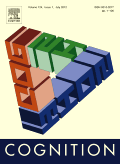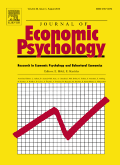
Religion Brain & Behavior
Scope & Guideline
Illuminating the Psychology of Belief and Behavior
Introduction
Aims and Scopes
- Cognitive and Neurobiological Studies of Religion:
The journal frequently publishes research that examines the cognitive processes and neurobiological mechanisms underlying religious experiences and beliefs, addressing questions about how the brain processes religious stimuli and the implications for mental health. - Cultural Evolution of Religion:
A significant focus is placed on the cultural evolution of religious practices and beliefs, exploring how these aspects adapt and change over time within different societies and how they interact with social norms and behaviors. - Interdisciplinary Approaches to Religion:
The journal encourages interdisciplinary studies that integrate insights from psychology, anthropology, sociology, and neuroscience to provide a comprehensive understanding of religious phenomena. - Impact of Religion on Well-being and Social Behavior:
Research often investigates the relationship between religious adherence and various aspects of well-being, including mental health, prosocial behavior, and community cohesion, highlighting the social functions of religion. - Rituals and Their Psychological Implications:
The journal explores the significance of rituals in religious practices, analyzing their psychological impacts on individuals and communities, and their role in fostering social bonds and identity.
Trending and Emerging
- Religion and Mental Health:
Recent publications increasingly explore the complex relationship between religious beliefs and mental health outcomes, examining both positive and negative impacts of religiosity on psychological well-being. - COVID-19 and Religion:
The impact of the COVID-19 pandemic on religious practices and beliefs has become a significant area of interest, with studies investigating how different faith communities adapted to public health challenges and the implications for social behavior. - Intersections of Science and Religion:
There is a growing trend in examining the compatibility and conflict between scientific understanding and religious beliefs, particularly in light of global challenges such as climate change and health crises. - Rituals in Contemporary Contexts:
Research on the role and significance of rituals in modern society is gaining traction, with a focus on how rituals adapt to contemporary cultural contexts and their psychological effects. - Spirituality and Non-religious Practices:
Emerging themes are addressing spirituality outside traditional religious frameworks, including the study of 'spiritual but not religious' (SBNR) individuals and their experiences with spirituality and technology.
Declining or Waning
- Traditional Doctrinal Studies:
There appears to be a waning interest in studies focusing solely on doctrinal or theological perspectives without empirical backing, as the journal increasingly emphasizes empirical research and interdisciplinary approaches. - Static Views of Religion:
Research that treats religion as a static system is declining. The journal increasingly favors dynamic models that account for changes in religious beliefs and practices over time, reflecting contemporary societal shifts. - Reductionist Approaches to Religion:
There is a noticeable decrease in reductionist explanations of religion that simplify complex phenomena into singular biological or psychological factors. The journal is moving towards more nuanced, integrative explanations that encompass a broader range of influences.
Similar Journals

JOURNAL OF EXPERIMENTAL PSYCHOLOGY-APPLIED
Unlocking the Secrets of Human BehaviorThe JOURNAL OF EXPERIMENTAL PSYCHOLOGY-APPLIED, published by the American Psychological Association, is a premier outlet for cutting-edge research in the field of Experimental and Cognitive Psychology. With an impressive impact factor indicated by its Q1 ranking in 2023, this journal stands as a leading resource for scholars and practitioners, fostering a deeper understanding of the applications of psychological principles. With its extensive coverage from 1995 to 2024, the journal delivers a wealth of empirical studies, theoretical discussions, and methodological innovations that inform both academic learning and practical implementations in psychology. Although the journal does not offer open access options, researchers can gain insights into its influential findings through libraries or institutional subscriptions. Located in Washington, DC, it serves as a critical platform for disseminating high-quality research that bridges the gap between theory and real-world applications, supporting the advancement of knowledge in the vital area of human cognition and behavior.

Archive for the Psychology of Religion-Archiv fur Religionspsychologie
Pioneering Research in the Psychology of ReligionArchive for the Psychology of Religion - Archiv für Religionspsychologie, published by SAGE Publications Ltd, stands as a leading journal dedicated to the interdisciplinary exploration of religion through the lens of psychology. With its rich history dating back to its first issuance in 1914 and a robust scholarly presence, this journal continues to influence the field of religious studies, evidenced by its prestigious Q1 ranking in Religious Studies and notable Q2 and Q3 rankings in Philosophy and Psychology respectively. Operating from the Netherlands, the journal offers a comprehensive platform that engages with diverse theoretical and empirical research, making it invaluable for researchers and professionals alike. Although it does not currently offer open access options, its contributions to the understanding of religious experience, cognition, and behavior remain pivotal, especially as it navigates historical perspectives and contemporary issues alike. Scholars interested in advancing their knowledge in the psychology of religion will find a wealth of information and cutting-edge analyses within its pages, reflecting the journal's commitment to academic rigor and relevance in a rapidly evolving field.

Frontiers in Human Neuroscience
Connecting Minds: Where Neuroscience Meets Behavioral ScienceFrontiers in Human Neuroscience is a premier open access journal published by FRONTIERS MEDIA SA, dedicated to advancing the understanding of the complexities of human neuroscience. With an ISSN of 1662-5161, the journal has established its prominence in various fields, achieving a Q2 ranking in categories such as Behavioral Neuroscience, Neuropsychology and Physiological Psychology, and Psychiatry and Mental Health as of 2023. Since its inception in 2008, Frontiers in Human Neuroscience has consistently contributed to the scholarly dialogue by offering a platform for innovative research that bridges the gap between neuroscience and behavioral science. The journal's rigorous peer-review process and commitment to open access ensures that findings are readily available, promoting collaboration and progress within the academic community. With an impact on neuroscience disciplines, it stands at the forefront of the field, inviting researchers, professionals, and students alike to engage with cutting-edge studies and developments. The journal's address is located in Lausanne, Switzerland, where it continues to flourish as a hub for neurobiological exploration.

TEMENOS
Navigating the Rich Tapestry of Religious ThoughtTEMENOS, a respected journal in the field of Religious Studies, is published by the Finnish Society for the Study of Religion and has been a pivotal platform for scholarly discourse since its inception. With an ISSN of 0497-1817 and a commendable ranking of #77 out of 644 in the Scopus Arts and Humanities category, TEMENOS stands out in the 88th percentile, demonstrating its academic rigor and impact. The journal, categorized in the Q2 quartile for 2023, focuses on the comparative study of religions, fostering an understanding of diverse belief systems, practices, and philosophical implications. Currently based in Finland, at the University of Turku's Department of Comparative Religion, TEMENOS offers a platform for innovative research and critical analysis, making it an essential resource for researchers, professionals, and students eager to delve into the complexities of religion in modern society. Although it is not an open-access publication, the journal's rich content and scholarly contributions are invaluable for those seeking to engage deeply with current developments in the field.

Brain Behavior & Immunity-Health
Unraveling the Connections Between Mental and Physical Health.Brain Behavior & Immunity-Health is a pioneering journal dedicated to advancing knowledge in the fields of nephrology and psychiatry, with a specific focus on the interplay between brain health and immune function. Published by Elsevier, this journal holds a prestigious Q1 ranking in both nephrology and psychiatry and mental health, underscoring its reputation for excellence within a competitive academic landscape. With an ISSN of 2666-3546, it provides a vital platform for researchers and professionals to disseminate cutting-edge findings and explore novel approaches to understanding the complex interactions between mental health and physical health dimensions. Available to readers in the United States and internationally, the journal not only supports open dialogue among scholars but also aims to foster interdisciplinary collaborations that address the critical challenges in these fields. As a part of its objectives, Brain Behavior & Immunity-Health is committed to highlighting transformative research that can lead to innovative strategies for healthcare, making it an essential resource for anyone seeking to expand their expertise in the intersection of behavioral health and immunology.

Cognition
Connecting Minds: The Journal of Cognitive ExplorationCognition, published by Elsevier, is a leading journal dedicated to the exploration and advancement of knowledge in the multifaceted fields of cognitive neuroscience, cognitive psychology, and linguistics. Since its inception in 1972, this prestigious journal has established itself as a prominent platform for disseminating innovative research and critical reviews, achieving a remarkable Q1 ranking across various relevant categories, including Cognitive Neuroscience and Developmental Psychology, as per the 2023 metrics. With a focus on providing insights that are vital for researchers, professionals, and students alike, Cognition boasts an impressive standing in the academic community, evidenced by its high Scopus rankings which place it in the top percentiles in several disciplines. Researchers interested in the cognitive processes underlying human thought, language, and behavior will find Cognition an invaluable resource that publishes cutting-edge findings and fosters interdisciplinary collaboration. Though it operates under a traditional access model, the breadth and depth of its content ensure it remains integral to advancing cognitive science.

Adaptive Human Behavior and Physiology
Pioneering Discoveries in Behavioral NeuroscienceAdaptive Human Behavior and Physiology, published by Springer Heidelberg, is a pivotal journal in the fields of behavioral neuroscience, experimental and cognitive psychology, and physiology. With its ISSN 2198-7335, this quarterly journal serves as a forum for innovative research that explores the intricate relationships between human behavior and physiological processes. Although currently categorized within the Q4 and Q3 quartiles for various psychological and physiological domains, this journal has rapidly established itself as a significant resource for cutting-edge studies from 2015 to 2024. The journal’s commitment to high-quality research is reflected in its Scopus rankings, positioning it among noteworthy publications, particularly in experimental psychology and neuroscience. This journal is vital for researchers, professionals, and students seeking to deepen their understanding of adaptive behaviors and the underlying physiological mechanisms. Join the discourse and contribute to this evolving field through your scholarship in Adaptive Human Behavior and Physiology.

JOURNAL OF ECONOMIC PSYCHOLOGY
Bridging Psychology and Economic BehaviorThe Journal of Economic Psychology is a premier academic publication dedicated to advancing the understanding of the interrelations between economic behaviors and psychological processes. Published by Elsevier, this journal has established itself as a critical resource for researchers and practitioners in the fields of *Applied Psychology*, *Economics and Econometrics*, and *Sociology and Political Science*, boasting an impressive *Q1* ranking in each category as of 2023. Since its inception in 1981 and with a commitment extending to 2024, the journal provides a platform for high-quality, peer-reviewed research that influences both theoretical frameworks and practical applications. With a rich interdisciplinary approach, the journal addresses pressing issues at the intersection of economics and psychology, facilitating a deeper understanding of how psychological factors drive economic decisions. Researchers looking to share innovative findings, as well as professionals seeking to implement evidence-based practices, will find the *Journal of Economic Psychology* an invaluable asset in their work. The emphasis on rigorous methodologies and relevant topics makes this journal not just a repository of knowledge, but a beacon for future studies that link economic and psychological insights.

BEHAVIOURAL BRAIN RESEARCH
Advancing Insights into Brain-Behavior DynamicsBEHAVIOURAL BRAIN RESEARCH, published by Elsevier, is a leading scholarly journal that has been at the forefront of research in Behavioral Neuroscience since its inception in 1980. With an ISSN of 0166-4328 and an e-ISSN of 1872-7549, this journal caters to a global audience of researchers and professionals keen on exploring the intricate relationships between behavior and neural processes. As of 2023, it holds an impressive Q2 ranking within its category, showcasing its significant impact with a Scopus rank of #28 out of 88 in the field, placing it in the 68th percentile. While the journal does not offer open access, it remains accessible through institutional subscriptions, ensuring that its high-quality research is disseminated effectively. The journal's commitment to advancing knowledge in behavioral neuroscience makes it an indispensable resource for those looking to delve deep into the complexities of brain-behavior interactions and foster innovative approaches in both research and clinical applications.

Journal of Cognition and Culture
Pioneering Insights into Cognitive and Cultural DynamicsThe Journal of Cognition and Culture, published by BRILL, stands as a pivotal resource in the fields of Cultural Studies, Social Psychology, and Experimental and Cognitive Psychology. With an ISSN of 1567-7095 and E-ISSN of 1568-5373, this scholarly journal has been contributing to the academic discourse since 2001 and continues to provide insights into the interplay between cognitive processes and cultural phenomena. Based in the Netherlands, it boasts impressive rankings, including Q2 in Arts and Humanities (Miscellaneous) and Q1 in Cultural Studies for 2023, reflecting its significance in addressing complex cognitive and cultural issues. Although it operates under a traditional access model, the journal's commitment to rigorous peer review and high-impact research ensures its relevance and authority in the field. Researchers, educators, and students alike will find the articles and studies published herein an invaluable addition to their understanding of how cognitive functions shape, and are shaped by, cultural contexts.